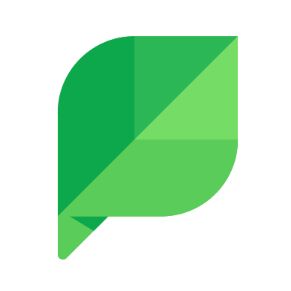You know what makes me crazy? Lofty directives from industry pundits telling me what magic I should be culling from all of the artificial intelligence (AI) resources available to me. I should be able to predict what the stakeholders at the businesses I’m marketing to are thinking, what they’ll do next, and what kind of soup they’ll eat on a Tuesday.
Practical ways to use AI for B2B marketing
I think the thing that these articles fail to mention is there are cost, infrastructure and privacy issues that are still largely unaddressed for the majority of marketers. Unless your budget is unlimited and you have a deeply cooperative, cross-functional, de-siloed work environment, using artificial intelligence to its fullest potential isn’t quite as simple as marketing magazines would like you to believe.
The good news is, there are many practical ways that you can actually use artificial intelligence to help make your job easier without having to sacrifice your budget and sanity. As you well know, there’s always room for better efficiency when it comes to B2B marketing.
In fact, many times you’re using artificial intelligence and machine learning already – it’s just not transparent to you.
If you’re looking to be more intentional about your use, here are a few ways that you can use AI that I’ve either personally tried or have had recommended to me in the last few weeks.
Artificial intelligence for productivity and effectiveness
I run a marketing agency, a coworking space and am a partner in a company analyzes the retail industry.
Of course, that doesn’t even start to touch on the fact that I’m a mom, a wife and a friend. Needless to say I’m pulled in a lot of directions. I like to think that I won’t die thinking “I just didn’t do enough.”
The best way from going off the deep end is to ensure that I stay organized and keep things moving. Here are a couple of tools I use that utilize artificial intelligence to stay sane and organized:
Google Assistant
It’s free! Although the idea that this is actually artificial intelligence is a little suspect, it does a few things that I think are incredibly helpful. It can add things to my calendar while I’m on the road, serve the day’s news in a series of audio clips scoured from around the web and give me recommendations conversationally so I don’t have to take my eyes off of what I’m doing.
Magic

Magic is $35/hour for personal accounts and $40/month + usage for business accounts. It’s a virtual assistant service that helps me do everything from low-level research tasks, travel plans, appointments and invoicing, combining real-live people with some artificial intelligence.
The description of the way they use AI is similar to what I’ve seen with Google Assistant, but their combination of stored information about my preferences, on-demand nature, and friendly automated replies genuinely make my life a nicer place.
Artificial intelligence for better advertising
Coming from a digital marketing agency background (as an in-house marketer), I have a deep appreciation for the importance of advertising as a brand builder and lead generator.
What makes this particularly challenging is keeping up with the never-ending changes that the more-economical platforms implement. It seems like an engineer sneezes and (whoops!) there goes the algorithm. Here are a few artificial intelligence tools that can help make advertising more efficient.
AdRoll

AdRoll has plans starting at $1,000/month. If you haven’t heard about programmatic advertising, you should go out and read about it right now. It’s one of the most efficient ad inventory buying approaches available to marketers today.
The most fantastical part is the use of artificial intelligence to match the right audience to your ad at the right time in the buying process.
AdRoll is one of the most prevalent versions, and if you’ve done advertising on any scale, you’ll know that $1,000/month is pretty reasonable. Any data insights you get from your customers here can be used to inform personas, advertising profiles, and content performance.
Revealbot
Revealbot is $49/month for up to $5,000 ad spend. Good news! Small businesses can have automation too! Hooray! Revealbot allows conditional changes to be made on your behalf, as well as the option to boost high performing posts automagically using… you guessed it: artificial intelligence.
Influencer marketing and artificial intelligence
Everything around public relations seems hard to me. I have such deep respect for public and media relations people and the work they do. I know people who love it, but it always seems a little like a long-game slog — this is comical considering I’m a passionate content and brand marketer.
But, that’s why anything that can actually make media relations more automated is welcome… nay, celebrated. Here’s a tool that has come into my space that sounded interesting and used artificial intelligence to streamline the process.
Influential
Influential (price unknown – contact them for details). We all know that IBM’s Watson is a pioneer of artificial intelligence, so finding a tool that helps you leverage their decades of research is probably better than doing it alone.
Much like the programmatic approach to marketing, these guys offer what I would call a programmatic approach to influencer marketing programs. They score influencers and match them with your brand based on audience data (ooh, aahhh).
Related Post: 9 Do’s and Don’ts of B2B Influencer Marketing.
Artificial Intelligence and social media
Social media is a beast to keep track of. Who can keep up, really? It is literally a full-time job to make sure you’re doing it right. And if you’re one of those departments that has a full-time social media person, kudos to you.
Whether giving directives to a full-timer or trying to do it all yourself, get strategic with tools that will help you become more efficient. Here’s one that I used and loved:
Sprout Social

Sprout Social has plans that start at $99 per user per month. It offers chatbots that will use AI to interact with customers and help answer frequently asked questions, recommended twitter replies to followers and calculate optimal post delivery time.
My favorite part? The interface doesn’t make me feel stupid or overwhelmed by features and yet it wields impressive analytics, insights and reports.
Side note: I scoured the web for a reasonably priced predictive editor that would help you know if your social media content would be successful. Unfortunately, it looks like the only one that was remotely reasonable seemed as though it went out of business. So! If you’ve got budget, you should try Sensai, Cortex, or Concured to ensure your content is optimized end-to-end.
Websites and content publishing
The SaaS content and SEO market that use artificial intelligence have been ruthlessly secretive about their pricing. It’s made it hard to find great examples to share with you without personally getting a demo.
After hours of research (all for you), here are the resources I found and, in some cases, use to help me build content that people will actually read and share via my email marketing programs.
Google Analytics
While Google Analytics has a premium/paid tier, many organizations use the version that’s completely free.
Need a data scientist at your fingertips? Run your data through Google Analytics and use their Insights bar (you can find it by looking at the little circle with the line around it). You can also use Ask Analytics Intelligence to learn more about the WHY behind the numbers.
Ask it things like “why did my numbers drop in April?” and “what are the top performing campaigns by conversion rate?” It helps you understand the remarkable moments your site has experienced for the good or the bad. It’ll keep you honest.
HubSpot Content Strategy Tool

The Hubspot Content Strategy Tool (part of the Marketing Hub Professional package) is $800/month.
It includes a ton of features and is way less than Marketo. Not sure what to write? This is machine-assisted content strategy stuff that might just make pitching your story to journalists easier.
When you can use machine learning to pin down the most relevant content ideas that will perform better than your limited imagination, it’s likely that your public relations, SEO and content strategy KPIs will improve.
CanIRank
CanIRank has a free version, with paid plans starting at $49/month. They describe themselves as “the first SEO software using AI to give you specific action recommendations rather than just data.”
What I’m learning over and over again is that the biggest use of artificial intelligence for marketers is in the interpretation of the data we’re collecting. Even better is when those interpretations can turn into actions. And that’s exactly what we see this SEO tool doing. I really enjoyed diving into the feature sets they offered and I’m getting pretty serious about subscribing.
Mailchimp

Mailchimp has a free version, with paid plans starting at $10/month. It’s been interesting to see how Mailchimp has quietly expanded over the years.
Their free marketing automation has fueled many small businesses. It’s really their effective and USEFUL use of artificial intelligence that I love. For instance, I’m a big fan of their Smart Scheduling feature.
Smart Scheduling allows you to send emails to your lists based on when they are most likely to open the email an interact with them. Although it’s paid feature, organizations I’ve supported have definitely benefited from that strategic sending technique.
Wrapping it up
The reality is that I’ve only scratched the surface of where you can put artificial intelligence to use as an marketer. What I hope you have gotten out of this is that tools that utilize this quickly evolving technology are available to even the smallest marketing organization.
At the end of the day it’s not the tools you use, it’s what you invest into them. Sadly, machine learning isn’t at the point where it can make you a sandwich, but it can take your existing data and customer profiles, help you dig deeper and be more strategic.
What AI-based tools are you using in your B2B marketing? Share them in the comments section below. Thanks!

0 Comments on "Artificial Intelligence for Everyday B2B Marketers"